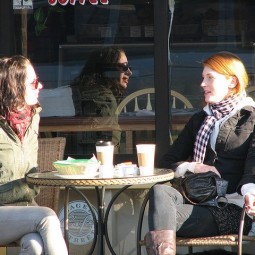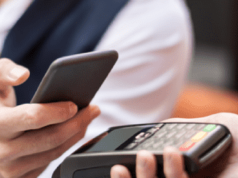Buying a client some coffee or lunch may seem a necessary business cost, but will the tax office give you a deduction for it?
Frustratingly for small business owners, the tax rules around client meals are not black and white.
When you pay for your clients’ food, drink or recreation in the context of meetings, business lunches and social functions, you are likely to incur what the ATO calls entertainment expenses, which are not tax deductible.
However, the tax office also says that entertainment doesn’t occur every time you provide food or drink (Tax Ruling TR 97/17), meaning there are instances when you can deduct these costs against your income.
Confused? Here are some pointers to help you work things out.
Throwing out the basic rule
With client meals, you need to forget the basic rule that you can claim expenses as long as they are directly related to earning your assessable income.
Even if you are seeing clients to discuss business matters, the tax office will disallow anything it classifies as entertainment expenses.
So the key is to establish what ‘entertainment’ really means.
What is ‘entertainment’?
There are four aspects to consider when deciding whether the cost of your client’s meal is an entertainment expense.
1. Is it being provided for enjoyment or refreshment?
Anything provided for enjoyment or in a social setting is regarded as entertainment. However, this treatment doesn’t apply to refreshments that allow you, your employees and the client to complete the working day in comfort.
2. How elaborate is the meal?
As long as no alcohol is served, simple meals involving sandwiches, finger foods and salads are not deemed to be entertainment. The same goes for morning and afternoon tea favourites like tea, coffee, fruit drinks, cakes and biscuits (Tax Ruling IT 2675).
3. Is it consumed during or outside work time?
Refreshments provided during work time will not likely be characterised as entertainment.
4. Is it consumed on your business premises?
Food or drink consumed on your business premises is less likely to be considered as entertainment when compared with dining in a function room, hotel, restaurant, cafe or coffee shop.
In summary, you may qualify for a deduction if your client is served light refreshments on your business premises during work time. However, it is advisable to consult an accounting professional for tailored advice.
Tax breaks are invaluable to small businesses. Figure out the rules around client meals and you could lower your future business costs.
Intuit Australia offers the nation’s two million small businesses and their trusted financial advisors the world’s leading online cloud accounting financial management solution, QuickBooks Online. As more people embrace the benefits of mobile and the power of the cloud, Intuit QuickBooks Online is here to help small businesses build a solid foundation for financial success.





![Ever considered crowdfunding? [FREE REPORT]](https://anthillonline.com/wp-content/uploads/2017/03/liz-wald-300x194.png)
![How to pitch sales and marketing ideas to your boss with James Tuckerman [FREE REPORT]](https://anthillonline.com/wp-content/uploads/2015/07/Render-3-100x75.png)
![Three easy wins when using LinkedIn with David Hobson [FREE REPORT]](https://anthillonline.com/wp-content/uploads/2015/08/3quick-wins-100x75.png)
![How to secure lucrative sponsorships in five steps [CHEAT SHEET]](https://anthillonline.com/wp-content/uploads/2016/02/jackie-fast-meme-04-100x75.jpg)
![Need cash for your startup or innovation? Here’s the Ultimate Grant Guide for Innovators and Startups [FREE DOWNLOAD]](https://anthillonline.com/wp-content/uploads/2015/10/INNOVATORS-GRANT-GUIDE-NFSU-page-spread-100x75.png)
![How to confidently raise venture capital… with Jack Delosa [CHEAT SHEET]](https://anthillonline.com/wp-content/uploads/2016/04/jack-de-losa-confidently-raising-venture-NFSU-rebrand-01.pdf-Box-2016-04-19-12-37-42-100x75.png)

![Four principles to creating dedicated customers…or zombie loyalists with Peter Shankman [Free report]](https://anthillonline.com/wp-content/uploads/2015/11/Screen-Shot-2015-11-26-at-11.16.26-300x194.png)
![5 Ways to get more out of your coffee shop meetings with Antony Gaddie [CHEAT SHEET]](https://anthillonline.com/wp-content/uploads/2015/07/gaddie-3d-cover-01--100x75.png)
![How to build a retail empire with James Webber [FREE REPORT]](https://anthillonline.com/wp-content/uploads/2015/06/james-webber-instagram-memes-01-100x75.jpg)
![How to price your product or service in 8 steps with Steve Major [FREE INFOGRAPHIC]](https://anthillonline.com/wp-content/uploads/2015/07/Screen-Shot-2015-11-26-at-11.40.10-100x75.png)
![Five essential things to get right if you want to raise capital, with Bryan Vadas [FREE CHEAT SHEET]](https://anthillonline.com/wp-content/uploads/2015/08/vadas-3d-cover-01--100x75.png)
![New Zealand’s Xero eyes US IPO, further disruption as subscribers increase [INFOGRAPHIC]](https://anthillonline.com/wp-content/uploads/2014/07/sruuuuujana-212x194.png)
![Ever wonder if your ‘content marketing’ is really just crap? You gotta see this! [INFOGRAPHIC]](https://anthillonline.com/wp-content/uploads/2014/08/content-100x75.jpg)
![7 Business Lessons From Game of Thrones [INFOGRAPHIC]](https://anthillonline.com/wp-content/uploads/2014/10/infographic-games-of-thrones-041-100x75.jpg)
![How to build your own Media Empire… In seven steps with Nathan Chan [INFOGRAPHIC]](https://anthillonline.com/wp-content/uploads/2014/10/Nathan-Chan-Infographic-e1413419529176-100x75.jpg)
![5 Business Lessons From Tinder [INFOGRAPHIC]](https://anthillonline.com/wp-content/uploads/2014/10/Tinder-Elegant-Infographic-100x75.jpg)



